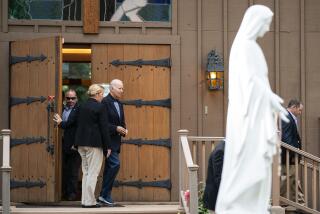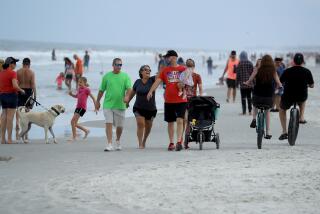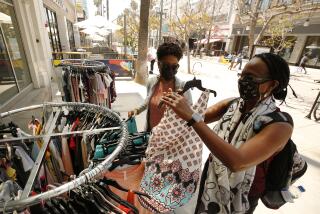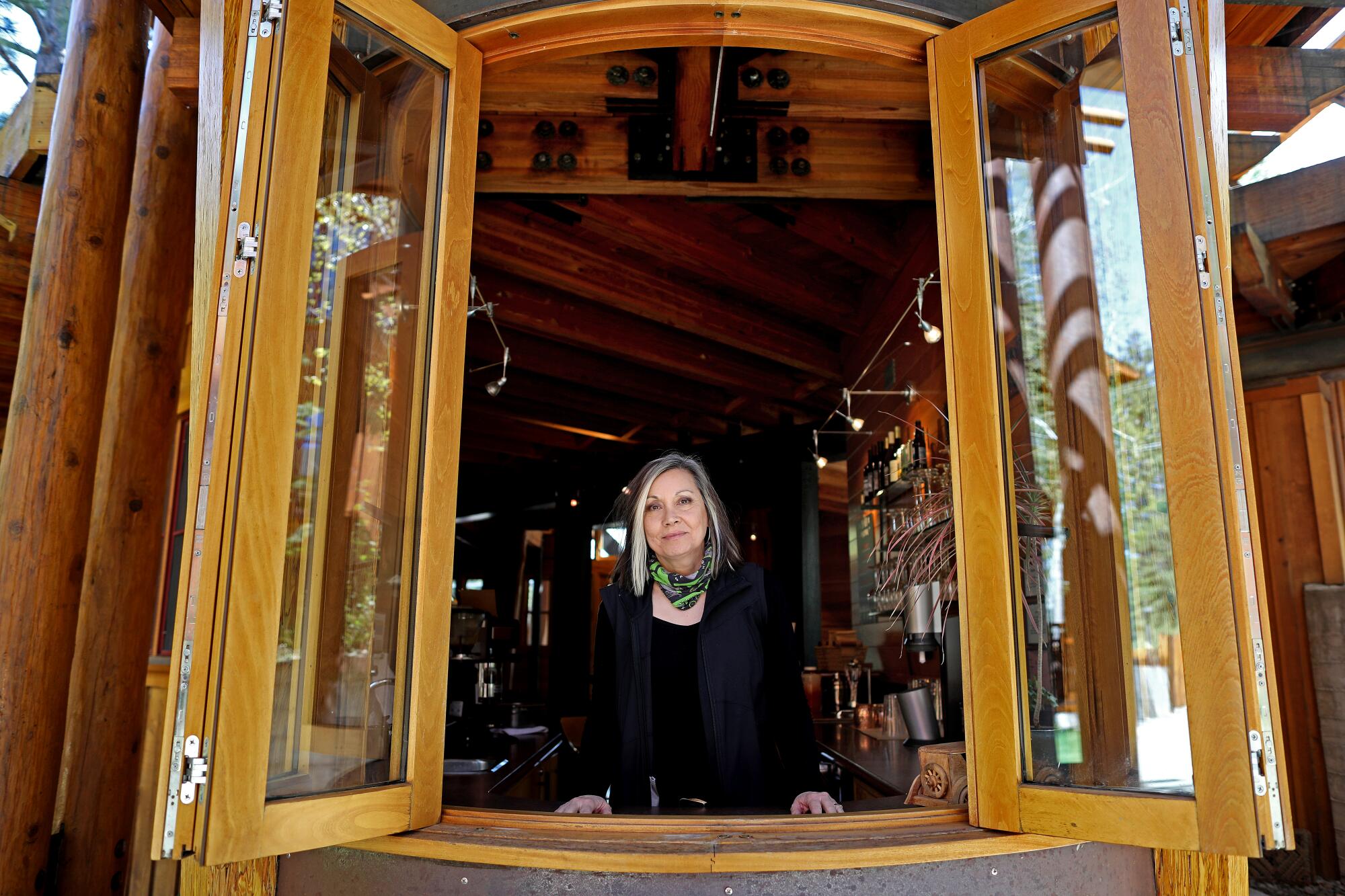
Patty Baird ticked off the changes she’ll be making at the Cedar House Sport Hotel when it reopens in Truckee, a town of more than 16,000 near Lake Tahoe that thrives off summer tourism.
Some things will go: No more self-serve coffee in the lobby, no more afternoon appetizer hour in which guests gather for cheeses and salty snacks. Other things will be added: Amenity bags with hand sanitizer and masks. Floor markings with six-foot intervals for social distancing. Employee temperature checks.
In new welcome letters that she’s still shaping, Baird, who owns the 40-room boutique-style hotel with her husband, wants to market the experience as safe yet not bare.
“Since I’m taking things away, how can I replace those so the guest feels like they’re a guest?” she said. “We’re now putting them into a very sterile environment, and I don’t want the experience to be sterile.”
California tourist destinations with economies devastated by the state’s coronavirus stay-at-home order are preparing to welcome visitors once restrictions are lifted. But though many in the industry eagerly await the moment they can declare themselves open for business, the uncertainty of when tourism will re-commence, and if there will, in fact, be a surge in visitors, has kept marketing efforts in limbo.
Baird has received new bookings for late summer, but she has held back on actively promoting her hotel without a reopening date.
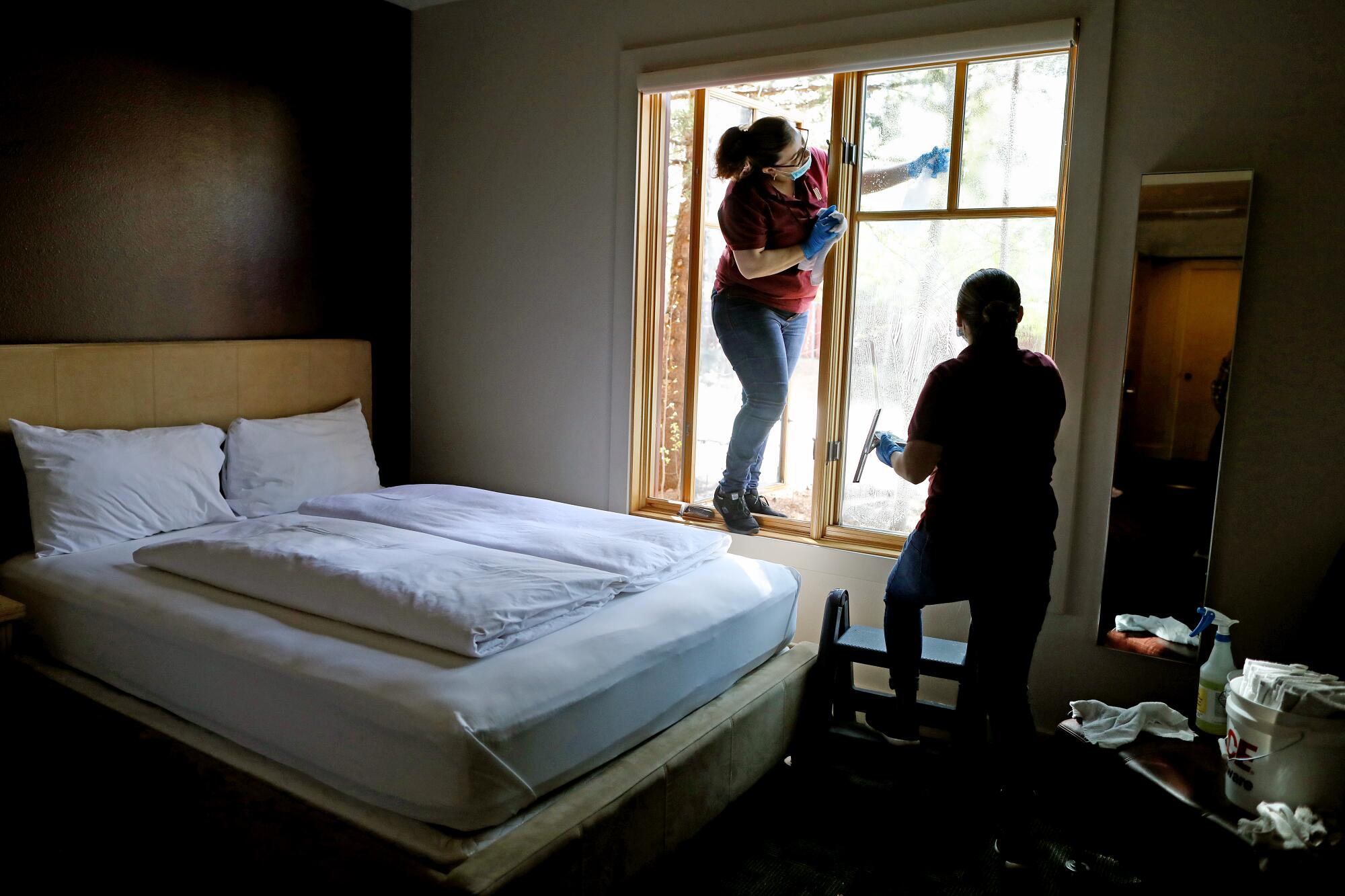
“There’s still too much uncertainty,” she said. “I kind of have plan A, B, C and D in my head ready to implement. But I need just a little more information.”
Gov. Gavin Newsom announced Monday that some retail stores across the state could reopen with modifications on Friday. But individuals will still be asked to continue to avoid nonessential travel, a restriction the tourism industry has its eye on.
The governor’s plan expands decision-making at the local level, allowing some communities to move further ahead into the reopening process and open businesses — such as restaurant dining rooms — beyond those in the statewide policy.
Dr. George Rutherford, an epidemiologist at UC San Francisco, said that while vacation spots could quickly become tourist magnets, a gradual reopening with social distancing and other safety protocols could minimize outbreaks. Of importance might be whether tourists come from cities where the virus is prevalent.
“You’re balancing revenues with disease,” he said. “You’re going to have pretty careful surveillance among the hotel staff and restaurants. If people start to get sick, that’s a clue that something has gone sideways.”
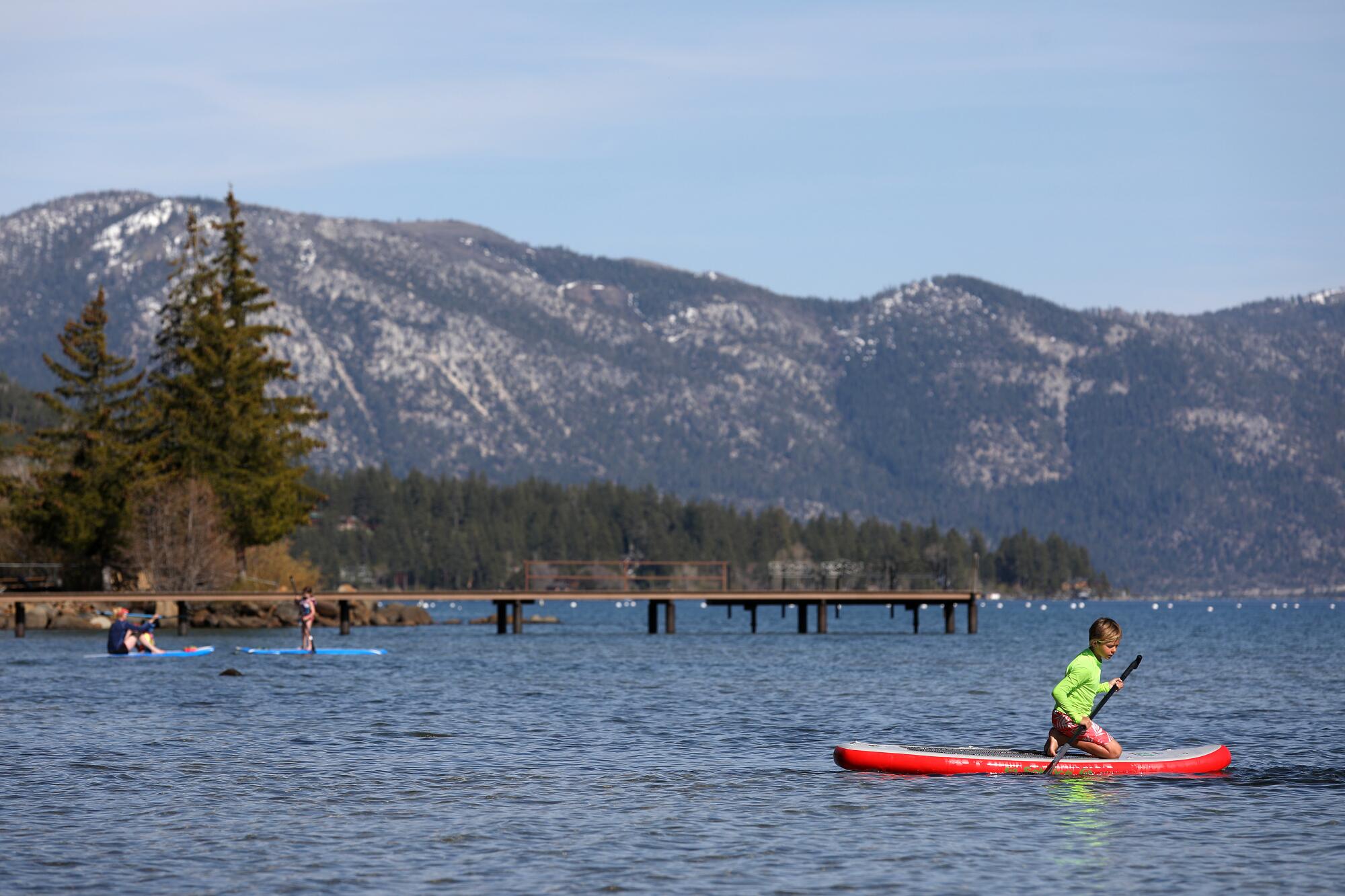
Industry experts say it’s difficult to gauge what a resurgence in tourism might look like. Caroline Beteta, president of Visit California, the state’s nonprofit tourism agency, said that hesitance around traveling — especially long distances — might help mitigate against tourists overwhelming cities.
Marketing tourist hubs again, she said, will start with stay-cations and then move toward pulling people farther away from their homes.
“Initially, we’ll see Californians driving California,” she said. “We certainly see that as a good thing and will amplify that at the right time. It will really help reopen the economy.”
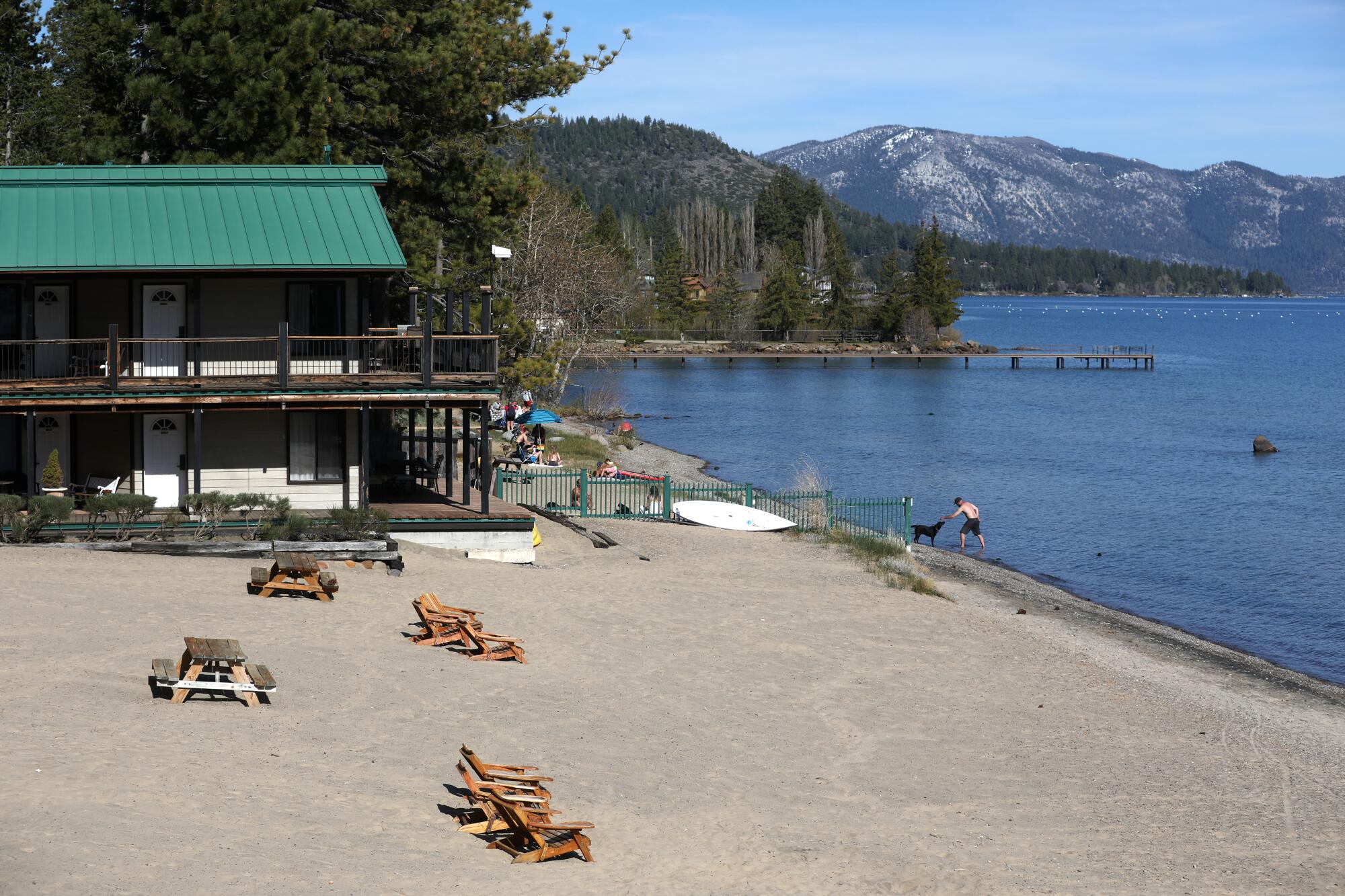
But visitor centers, hotels and vacation rental companies are wrestling with when they should commence re-imagined marketing campaigns.
According to the Lake Tahoe Visitors Authority, last year the city of South Lake Tahoe and Stateline, Nev., received more than 1.3 million overnight summer visitors.
Carol Chaplin, the organization’s president, said it is looking into expanding its marketing efforts to reach people who may drive from farther away to the Lake Tahoe region, such as from southern Nevada or Arizona. Marketing materials may include itineraries with stops drivers can make along the way.
Chaplin explained that the visitors authority needs to have various types of messaging ready, including for a scenario in which tourism opens up and then is restricted again.
“Right now, it’s a moving target,” Chaplin said. “We have five or six different scenarios. It’s complicated. It’s nerve-racking.”
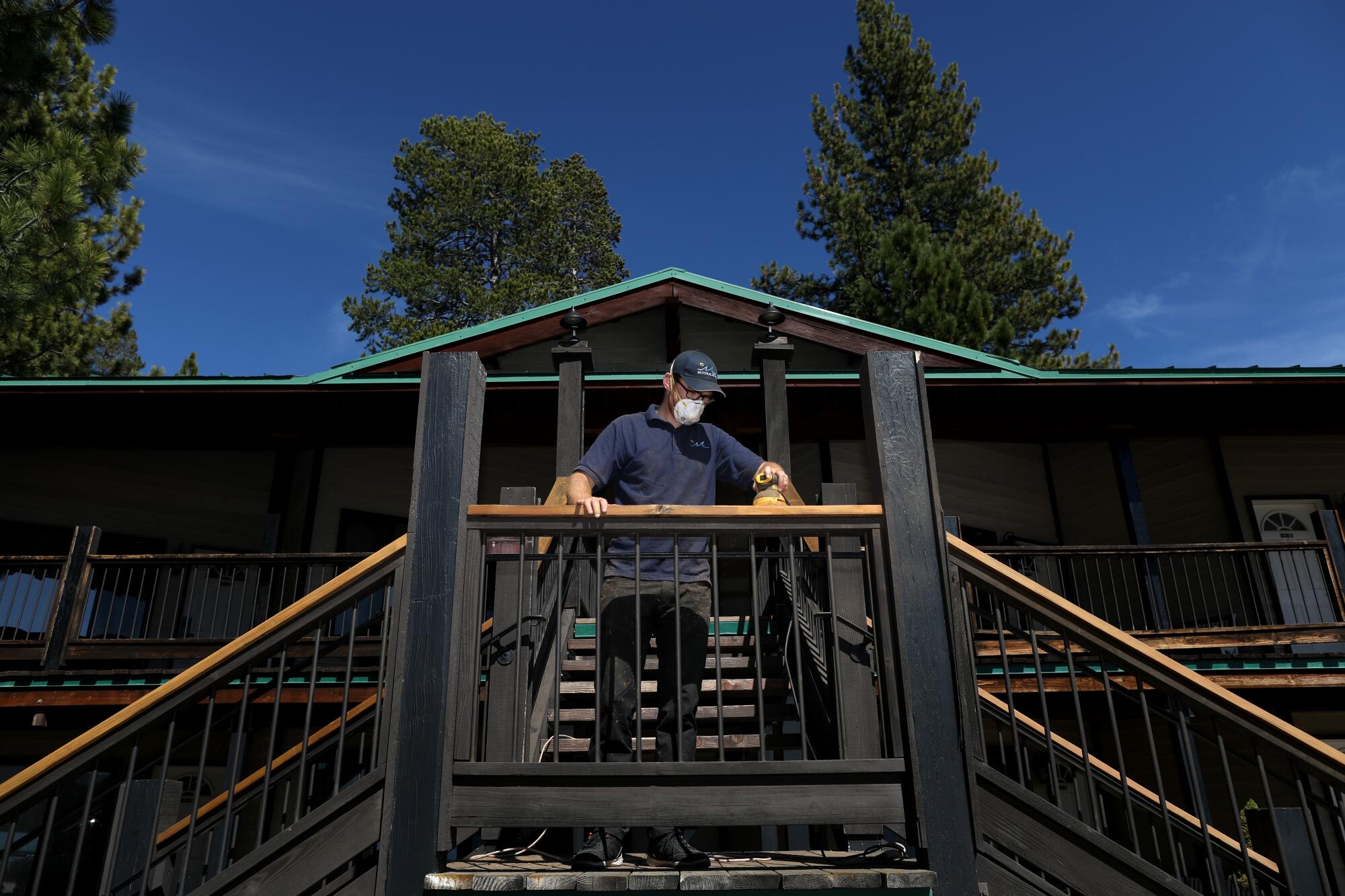
Other preparations in anticipation of summer tourists have moved forward. Truckee and North Lake Tahoe officials, for example, have canceled Fourth of July fireworks. Truckee Mayor Dave Polivy said that if counties don’t show consistency in permitting special events, crowds could overwhelm one area.
“We’re a huge tourist destination. As soon as it gets to be 90 or 100 degrees in Sacramento and the Central Valley, people tend to flock to the mountains for cooler air and cooler water,” he said. “It’s incumbent on us to be prepared for it.”
Cindy Gustafson, a Placer County supervisor, said the Lake Tahoe region is also working to coordinate messaging about social distancing and mask use at beaches, parks and trail heads. The arrival of visitors, despite stay-at-home orders, has added urgency.
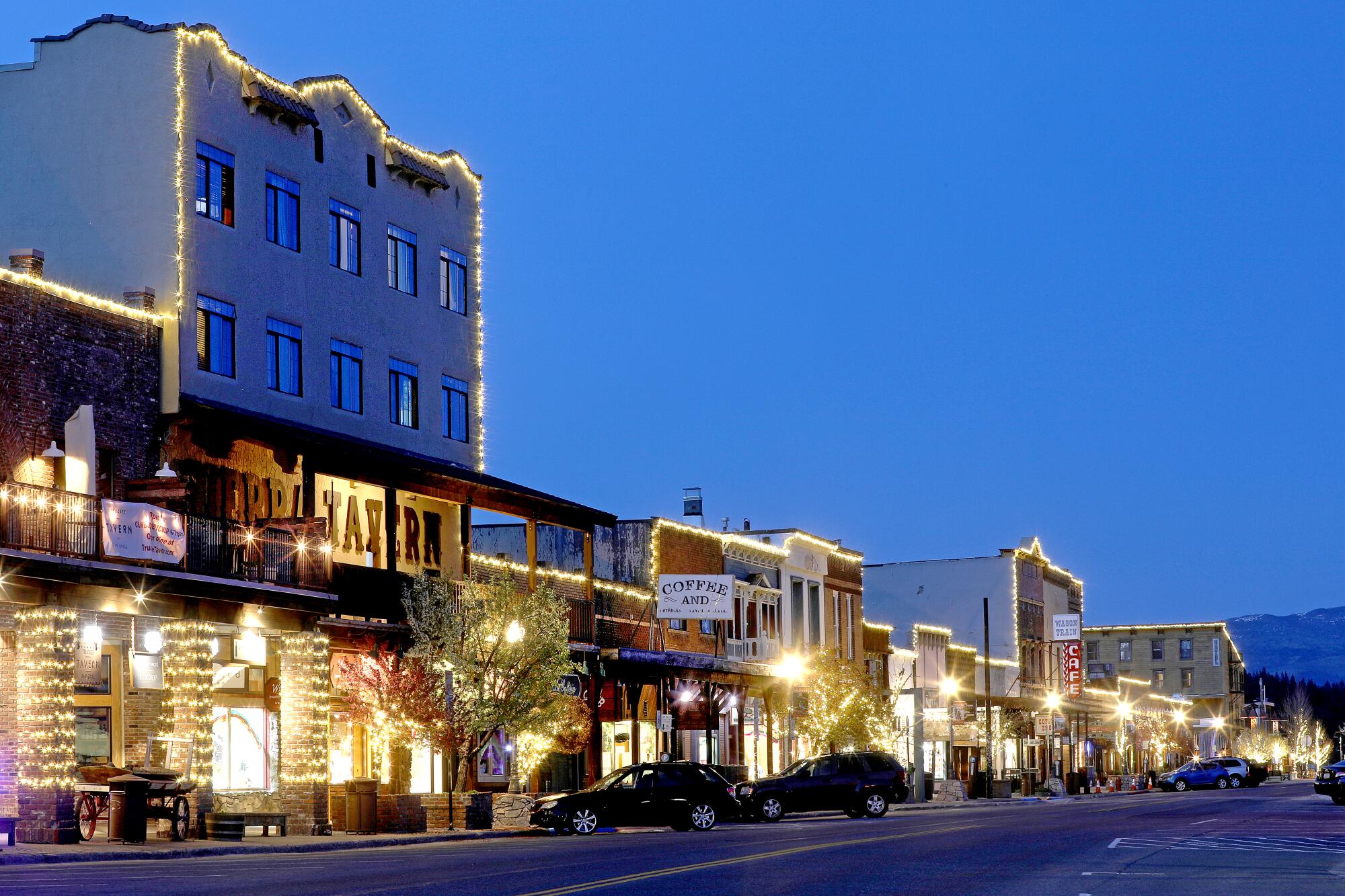
“The reality is leisure travel is already occurring,” she said. “There’s an awful lot of people using vacation homes and trying to do it under the radar.”
Adapting to new industry practices could take time. Jeffrey Hentz, chief executive of the North Lake Tahoe Resort Assn., said lodging businesses, among other sectors, have met virtually to create safety protocols to present to county officials. They’ve discussed the need for extra cleaning staff at hotels and whether vacation rentals should institute a buffer period between stays.
“It’s going to be a combination of getting the right new inventory, getting the workforce trained,” he said. “So many people are going to have new jobs added to their current job. We’re going to need a window.”
Even with safety guidance, some officials are concerned about encouraging tourism too soon. Dr. Tom Boo, public health officer for the Eastern Sierra’s Mono County, said that while the county’s hospital system can take care of the approximately 8,000 residents of Mammoth Lakes, as well as the surrounding region, it would be overwhelmed by a surge triggered by tourists.
In late March, the county had the highest per capita rate of coronavirus cases in the state, and officials worked to keep visitors out.
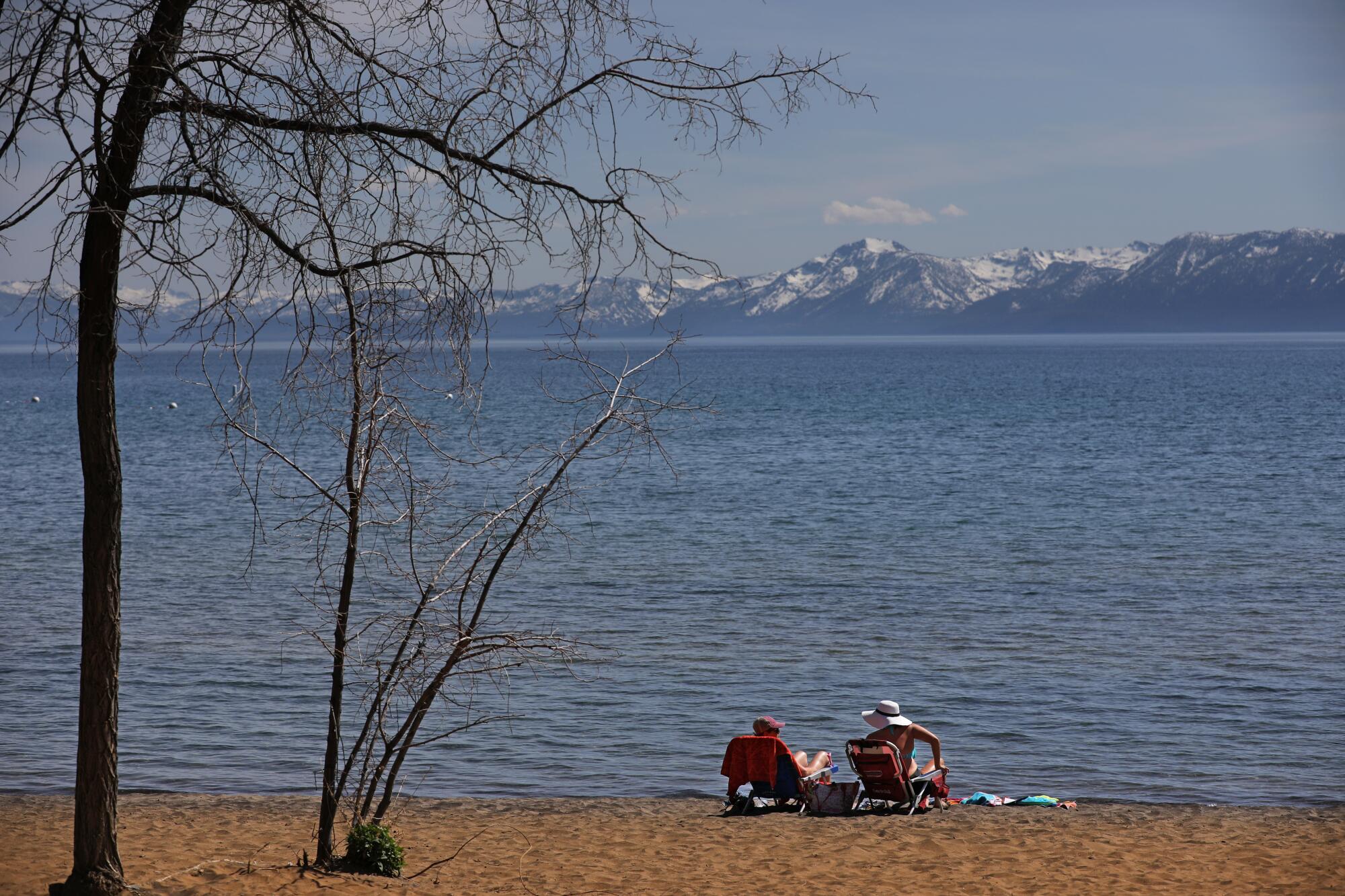
“Now, the pendulum is swinging the other way,” Boo said. “The economic hardships are severe and much of the county depends on summer tourism. There’s very significant political pressure and demands for reopening. I feel like we’re caught between a rock and a hard place.”
Canceling popular events might prevent a rush of tourists. The city of Solvang in Santa Barbara County, whose windmills and half-timbered architecture draw more than 1½ million visitors a year, canceled a May procession of 750 cowboys, called The Rancheros Visitadores, for the first time in 89 years.
Mayor Ryan Toussaint said the city has lost nearly 60% of its general fund money, but it won’t encourage large numbers of guests until the time is right.
“There’s always something going on in Solvang, but until we know we can run a larger event, all of those have been postponed,” he said.
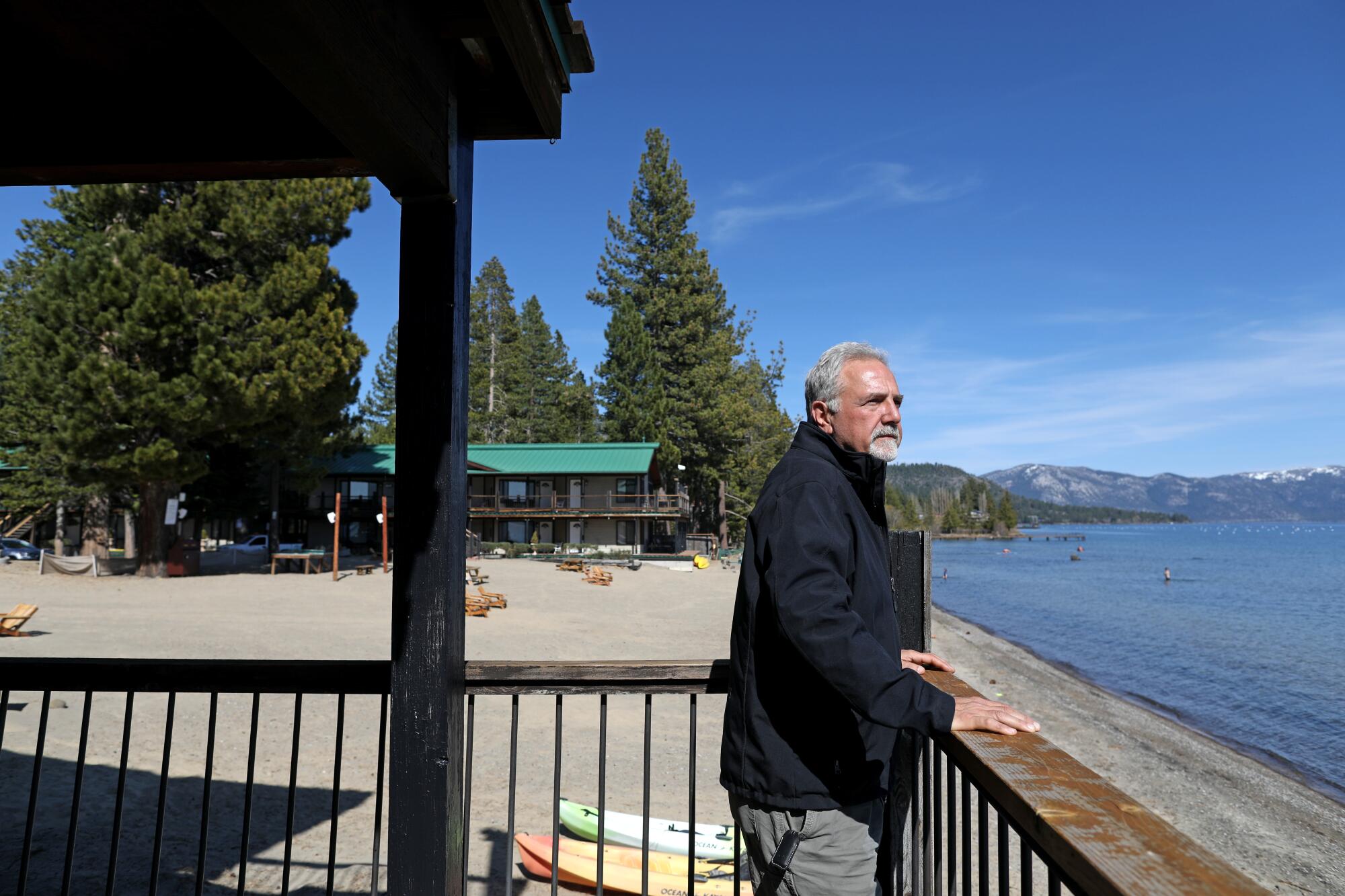
Back by Lake Tahoe, general manager Alex Mourelatos of the 32-room Mourelatos Lakeshore Resort in Tahoe Vista expects to lose 30% to 50% in revenue this year with canceled fall events such as weddings.
The beachside motel, normally close to full occupancy in July and August, will reopen with a series of changes. Guests will check in on iPads that will be disinfected after each use. To lessen direct contact with staff, they will be able to ask questions through a texting application. Guests will also receive text message reminders of the resort’s social distancing rules.
“If people don’t comply with social distancing measures, they’ll be asked to leave — that’ll be in the confirmation letter email,” Mourelatos said.
He’s had one pleasant surprise: July stays have increased as many return guests who booked their reservations months in advance have confirmed their visits.
“Obviously, the consumers are betting that we’re going to be open by July,” he said. “We are telling them we’re drafting memos for housekeeping and guest protocols. And they’re not blinking.”
More to Read
Sign up for Essential California
The most important California stories and recommendations in your inbox every morning.
You may occasionally receive promotional content from the Los Angeles Times.
